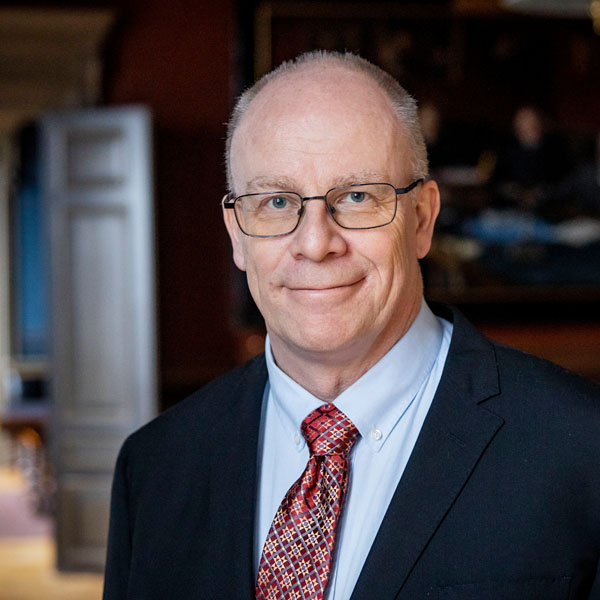Everyone’s talking about AI, at every turn and with differing agendas. The pattern is recognisable from past introductions of new technologies. On the one hand are sky-high expectations, on the other major concerns. Risks and opportunities are debated. And right in the midst of these developments is our University.
When five years ago the University established a University-wide centre, AI4Research, the discussion surrounding AI had already truly begun to gain pace. Even back then, the technology behind Artificial Intelligence had already been in use in a range of areas at our University for quite some time, and now it was to be applied in a number of research projects. There was wild speculation in the popular debate, knowledge was shared, a greater understanding emerged and many people aired their fears.
At breakneck speed we have had to learn new software and have discovered new applications – such as the AI robot that assists with archiving. In our day-to-day lives, many of us are using tools like ChatGPT and so on to help us with translations, summarising texts and making presentations, to name just a few areas. (Alert readers of the Vice-Chancellor’s blog will remember that we have written about this subject previously.)
The reason I am raising this subject again now is that, as a decentralised University, we sometimes need to come together and join forces.
Because while these tools and technology harbour major potential to improve aspects of our programmes, support research and create more effective administrative processes, we have a huge responsibility to help steer their application. In a focused manner combined with scepticism, caution and enthusiasm, we must review our own ways of working, take advantage of new AI tools, but also manage fears concerning quality, security, legality, ethics and morals, among other aspects. A good example and a vital issue that we have so far managed successfully thanks to the Deputy Vice-Chancellor and disciplinary board’s actions last winter, is that of cheating. We are learning with each step and sharing our insights. After all, a broad University like ours can contribute expertise from multiple perspectives in a way that is not available to other higher education institutions.
Internally, a number of voices have called for a statement from the University on its approach that lays out its view. The expectation is that the management should demonstrate the way forward. I am concerned that such a statement would only limit us and rapidly become outdated. But in the spirit of being as clear as possible:
We at Uppsala University want to create an environment in which new opportunities involving AI are assessed in order to benefit our students, staff and wider society. This means that we want to:
• encourage responsible, ethical usage and testing of generative AI tools,
• support our staff to become proficient in AI,
• help students to use generative AI in an effective, appropriate way in their learning,
• promote adaptation of teaching and assessment to AI,
• ensure that information security, data protection, copyright and academic integrity are upheld,
• collaborate on best practices as the technology and its applications develop.
In connection with all of the above, several new initiatives are now being undetaken.
• On 11 September we will hold a Vice-Chancellor’s seminar on these issues. Tips and advice on tools and various issues are available on the Staff Gateway. Perhaps we can move the discussion on and place the emphasis on opportunities rather than risks.
• An institute is under development as part of Uppsala University Future Institutes, which will focus on AI from every conceivable perspective. It will involve both methodology support and cross-disciplinary research. The goal of the institute is to establish the highest level of international excellence and a creative research environment.
• A summary page will soon be available online for anyone wanting to know more about AI and about where you can turn to get support with various issues.
AI offers us new opportunities. It will be exciting and fascinating to see how the University, research, teaching and wider society will be affected by new insights and techniques. We have a major task, but it rests on us continuing to do what we are good at; something which is in our very nature as a higher education institution. Using scientific methods and a critical approach, we must assess, reassess, test out, evaluate, discuss and create new knowledge. That is true intelligence.

